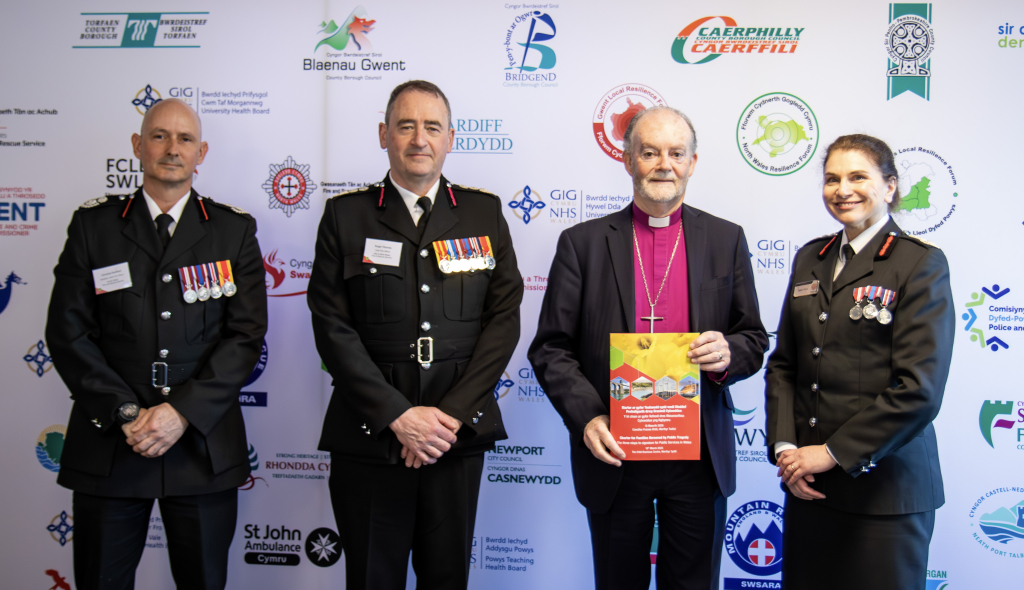Signing of Charter to Support Bereaved Families
South Wales Fire and Rescue Service have signed the Charter for Families Bereaved by Public Tragedy, which commits them to responding to public tragedies with openness, transparency and accountability.
The charter, written by Bishop James Jones KBE, was part of his report on lessons from the Hillsborough tragedy. Organisations across Wales including Welsh Government, local authorities, police forces and fire and rescue services have signed the charter, as a clear commitment to support bereaved families and the community in the aftermath of a major incident.
Christian Hadfield, Assistant Chief Fire Officer of South Wales Fire and Rescue Service, who attended the public signing of the Charter for Bereaved families at an organised event held in Merthyr, said, “The devastating impact on bereaved families following a major incident or public tragedy cannot be overstated. In these moments of loss, it is essential that all public bodies act with transparency, integrity, and in the public interest. This commitment is not just a promise—it is a fundamental responsibility. We recognise that trust is built through openness, and that true recovery can only happen when those affected are fully supported. We will continue to uphold these principles in all that we do, ensuring that families are never left without the truth or the care they need in the wake of public tragedy.”

The charter outlines a clear commitment to supporting bereaved families, treating them with care and compassion, not only at the time of an emergency, but in the weeks, months and years after too.
The Charter
More information on the charter can be found here.